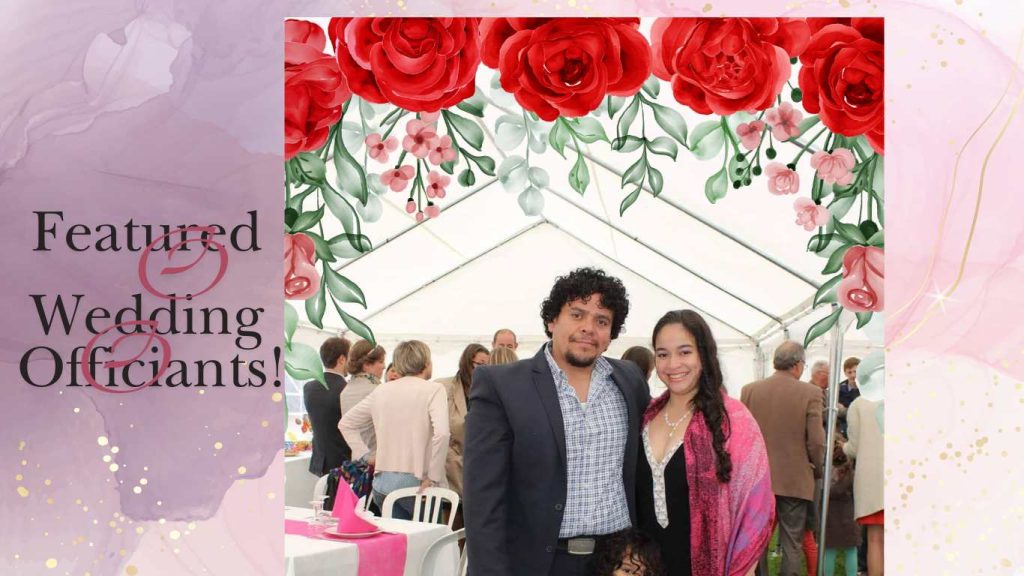
Are Cibus Mission Ordained Ministers Authorized to officiate weddings in Maryland? Yes

Maryland Code, Family Law § 2-406
Current as of December 31, 2021
(a)(1) In this subsection, “judge” means:
(i) a judge of the District Court, a circuit court, the Court of Special Appeals, or the Court of Appeals;
(ii) a judge approved under Article IV, § 3A of the Maryland Constitution and § 1-302 of the Courts Article for recall and assignment to the District Court, a circuit court, the Court of Special Appeals, or the Court of Appeals;
(iii) a judge of a United States District Court, a United States Court of Appeals, or the United States Tax Court; or
(iv) a judge of a state court if the judge is active or retired but eligible for recall.
(2) A marriage ceremony may be performed in this State by:
(i) any official of a religious order or body authorized by the rules and customs of that order or body to perform a marriage ceremony;
(ii) any clerk;
(iii) any deputy clerk designated by the county administrative judge of the circuit court for the county; or
(iv) a judge.
(b) Within 6 months after a license becomes effective, any authorized official may perform the marriage ceremony of the individuals named in the license.
(c)(1) An individual may not perform a marriage ceremony unless the individual is authorized to perform a marriage ceremony under subsection (a) of this section.
(2) An individual who violates this subsection is guilty of a misdemeanor and on conviction is subject to a fine of $500.
(d)(1) An individual may not knowingly perform a marriage ceremony between individuals who are prohibited from marrying under § 2-202 of this title.
(2) An individual who violates the provisions of this subsection is guilty of a misdemeanor and on conviction is subject to a fine of $500.
(e)(1) An individual may not perform a marriage ceremony without a license that is effective under this subtitle.
(2) An individual who violates the provisions of this subsection is guilty of a misdemeanor and on conviction is subject to a fine not exceeding $500.
(f) The county administrative judge of the circuit court for the county shall designate:
(1) when and where the clerk or deputy clerk may perform a marriage ceremony; and
(2) the form of the marriage ceremony to be recited by the clerk or deputy clerk and the parties being married.
(g) This section does not affect the right of any religious denomination to perform a marriage ceremony in accordance with the rules and customs of the denomination.
Officiate Weddings!
Understanding Your Role as a Wedding Ceremony Officiant: Becoming a wedding ceremony officiant is a rewarding experience that allows you to play a significant role in a couple’s special day. As an officiant, you’ll guide the ceremony, ensure legal requirements are met, and help create a memorable experience.
Step-by-Step Guide on How to Officiate a Wedding:
- Get Ordained: The first step to becoming a wedding officiant is to get ordained. Organizations like Cibus Mission offer online ordination, making the process simple and accessible.
- Understand the Legal Requirements: Each state has different legal requirements for officiating weddings. Make sure to research and comply with the laws in the state where the wedding will take place.
- Meet the Couple: Spend time with the couple to understand their vision for the ceremony. Discuss their preferences, any special rituals they want to include, and any specific vows they want to exchange.
- Prepare the Ceremony Script: Draft a ceremony script that includes the opening remarks, readings, vows, exchange of rings, pronouncement, and closing remarks. Personalize the script to reflect the couple’s relationship and wishes.
- Rehearse: Attend the wedding rehearsal to familiarize yourself with the venue and practice the ceremony flow with the couple and wedding party.
- Perform the Ceremony: On the wedding day, arrive early, conduct the ceremony confidently, and ensure all legal documents are signed and submitted as required.
How to Become a Wedding Officiant
Steps to Becoming a Wedding Ceremony Officiant:
- Research Ordination Options: Look into various ordination services, such as Cibus Mission, that offer quick and easy online ordination.
- Complete the Ordination Process: Follow the steps provided by the ordination service to become an ordained minister. This typically involves filling out an application and possibly paying a fee.
- Learn the Laws: Each state has specific laws regarding who can officiate weddings. Research the legal requirements in your state to ensure you are compliant.
- Gain Experience: Start by officiating weddings for friends and family to gain experience and confidence. Consider shadowing an experienced officiant if possible.
- Market Your Services: Create a website, business cards, and social media profiles to advertise your officiant services. Highlight your unique selling points, such as personalized ceremonies or special themes.
Benefits of Becoming a Wedding Officiant:
- Personal Fulfillment: Officiating weddings is a deeply rewarding experience that allows you to contribute to one of the most important days in a couple’s life.
- Flexibility: As an officiant, you can choose how many weddings you want to officiate and create your own schedule.
- Connection: You’ll have the opportunity to connect with diverse couples and help them create meaningful ceremonies.
Select the Certification package that is best for you :
Featured Officiants from Maryland:

